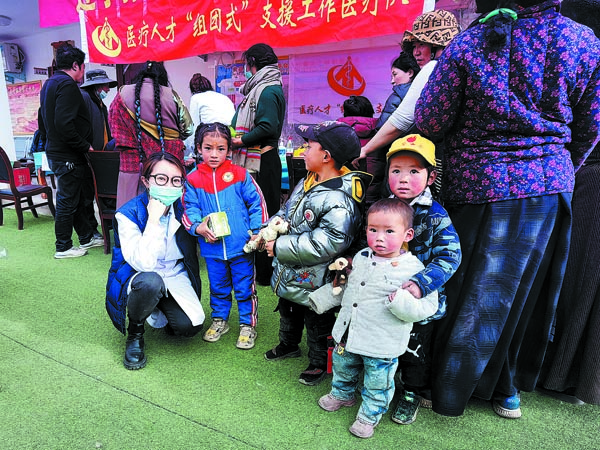

Zheng easily recalls her experience saving a newborn with severe jaundice in 2021. A young child was in serious danger of dying and needed an urgent exchange transfusion, a blood transfusion in which the patient's blood is removed and replaced by donated blood.
"I had my heart in my throat, and was wondering if we could save her. But, considering there was no time to send her to a hospital in Lhasa, capital of Tibet, where facilities and equipment are better, we had to try to save her ourselves.
"We quickly analyzed the situation, formed a plan, and got parental consent. I knew if we did not try, she had no chance of survival." she adds.
It was a long and tiring night. The surgery started at about 11 pm and ended at 3 am. None of the staff at the pediatrics department left. After blood transfusion, the child's vital signs became stable. Following treatment, over about 20 days, she successfully recovered and was discharged from hospital.
"Although the environment in Tibet is harsh, it seems children there have an amazing vitality," says Zheng.
"I see the process of children going from being in a coma to gradual recovery. Then they can breathe by themselves, drink milk, and smile. That endows me with a sense of fulfillment. It seems we grab them from the gate of death," she adds.
Back when Zheng was a medical student, she began to feel a sense of fulfillment in saving children, which led to her becoming a pediatrician. "Children are simple. They don't pretend to be ill. They cry and make noise when they feel uncomfortable, but with your treatment and care, they recover and continue laughing and playing happily. That process always impresses me," says Zheng.